04 Oct 2024 | Updated 11 Dec 2024
Khalsa Aid team prepares and serve hot meals to hundreds of Kurdish refugees daily who cross the Syria/Iraq border overnight after fleeing war.
Since, 2011, Syria has been at war. There is a dispute surrounding state territory that is home to Arabs, Kurds, Turkmen, Assyrians and Druze, who have varying relationships and alliances with each other. The war itself is between the Syrian Democratic Forces, the central government in Damascus and the so-called Islamic state. Despite efforts to diplomatically resolve the conflict, it continues, however Russia and Iran have assisted the Syrian government in forcing back opposition ground and reclaiming large parts of the country.
This conflict has had a devastating impact, costing half a million lives and resulting in more than 13 million people becoming refugees. More than 6 million refugees have sought protection in neighbouring countries, or Europe as a result of this.
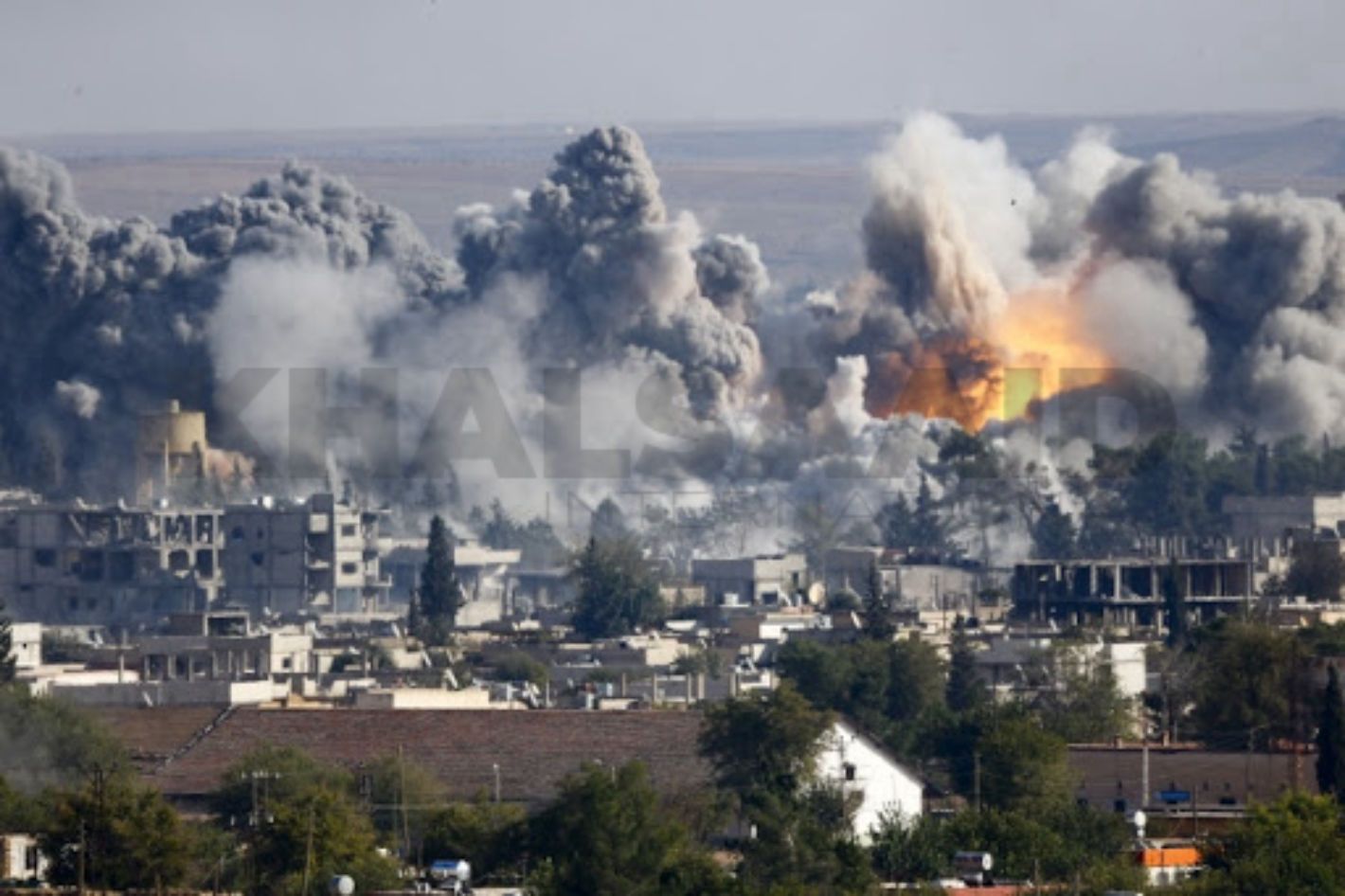
The impact of this conflict has been significant on all generations, with schools being destroyed, roads becoming impassable and water and electricity supplies being damaged. Highlighting the effect on children, there is a great concern for the 6 million Syrian children that have been unable to attend school regularly, or at all, in many cases. The United Nations have warned of a ‘lost generation’ as a result of this, causing more people than ever before to face poverty and unemployment.
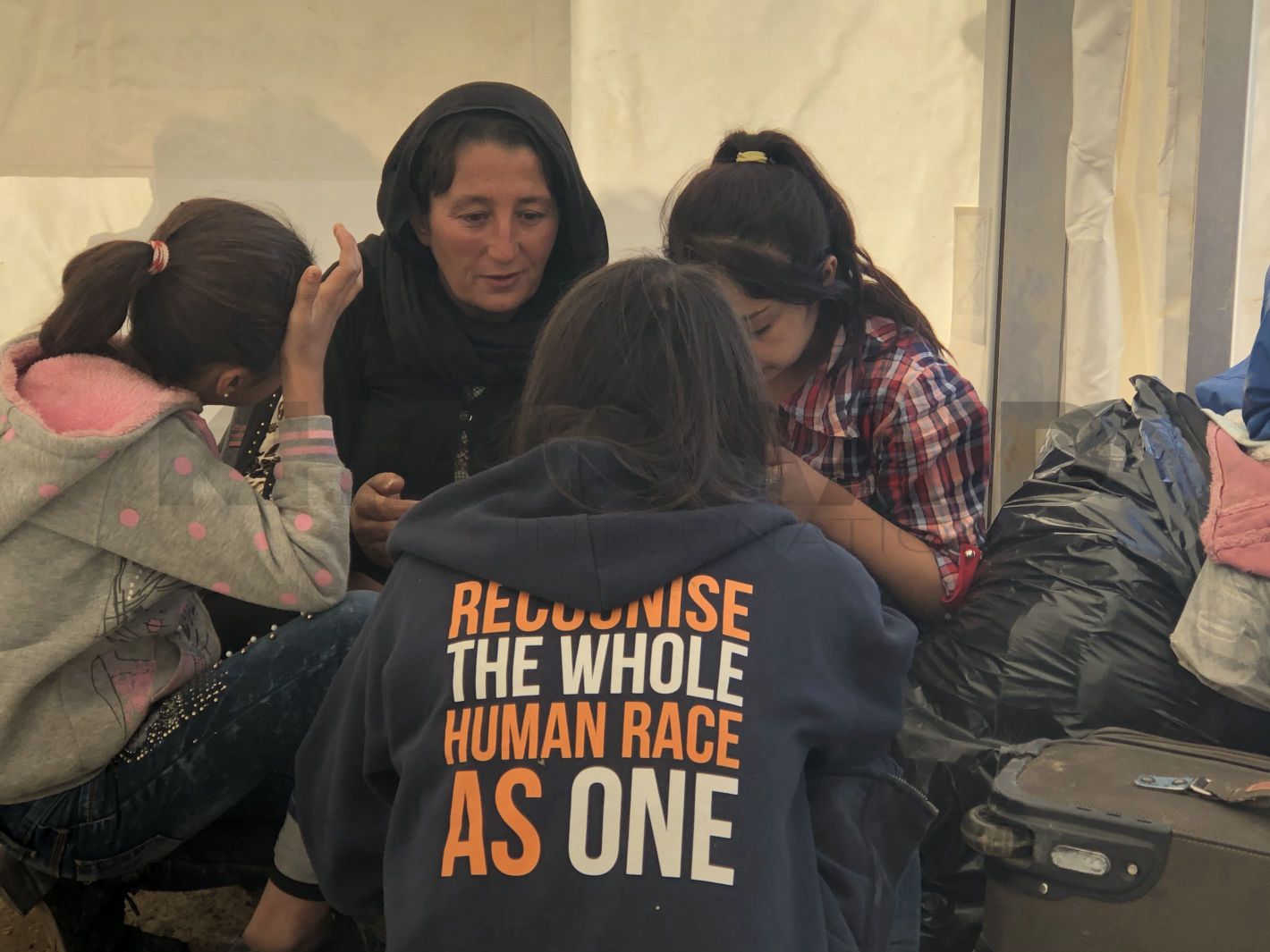
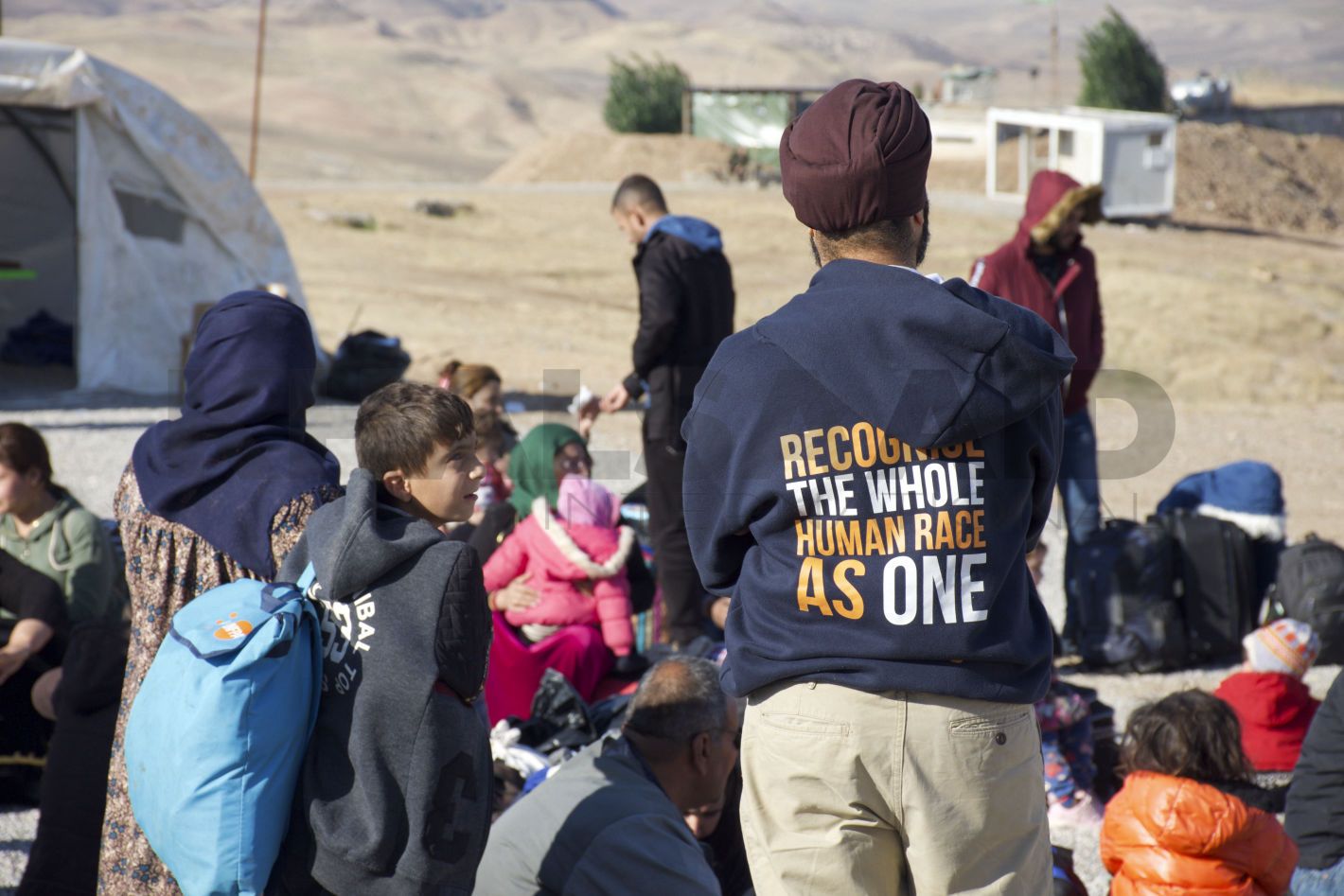
A Khalsa Aid mission saw volunteers assist those fleeing the conflict. When the Khalsa Aid team were assisting in Syrian refugee camps and Yazidi IDP camps, they were made aware that the region’s security situation was deteriorating and that U.S. military troops had pulled out of north-eastern Syria, as well as Turkish president Recep Erdoğan preparing a military campaign against Kurdish forces controlling the area.
As refugees fled over the border into Iraq, they were transported to Bardarash refugee camp, located 150km east of the Syria-Iraq border. When the refugees arrived with the Khalsa Aid team, they explained it had taken days to reach the border as they escaped shelling and fighting. Some children had been separated from their parents in the conflict, however they were hoping to be reunited with them if they made it across. While the refugees’ physical condition was good, they were cold and children had been given sleeping pills to avoid attracting attention of the guards at the Syrian border and people were in need of psychosocial support.
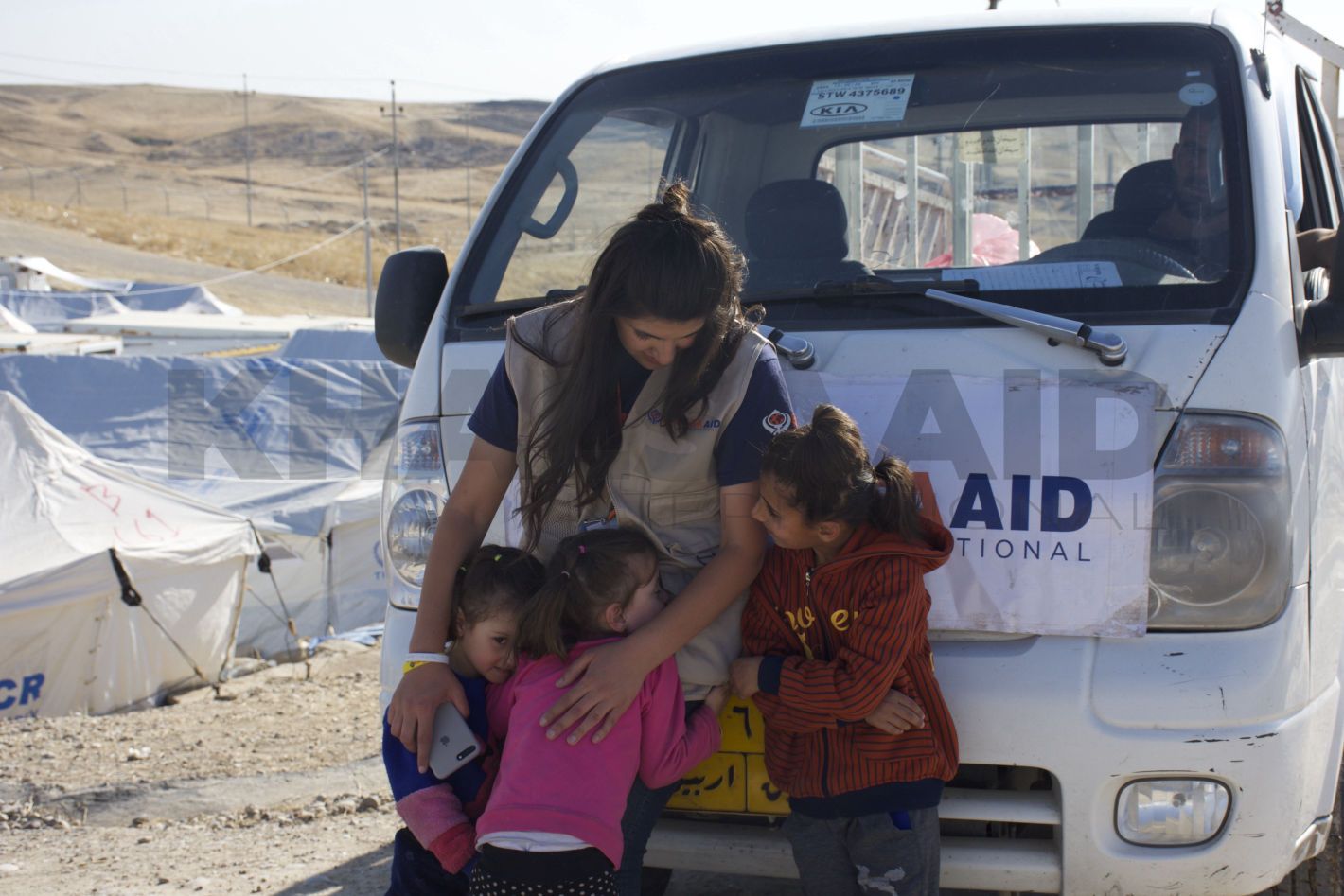
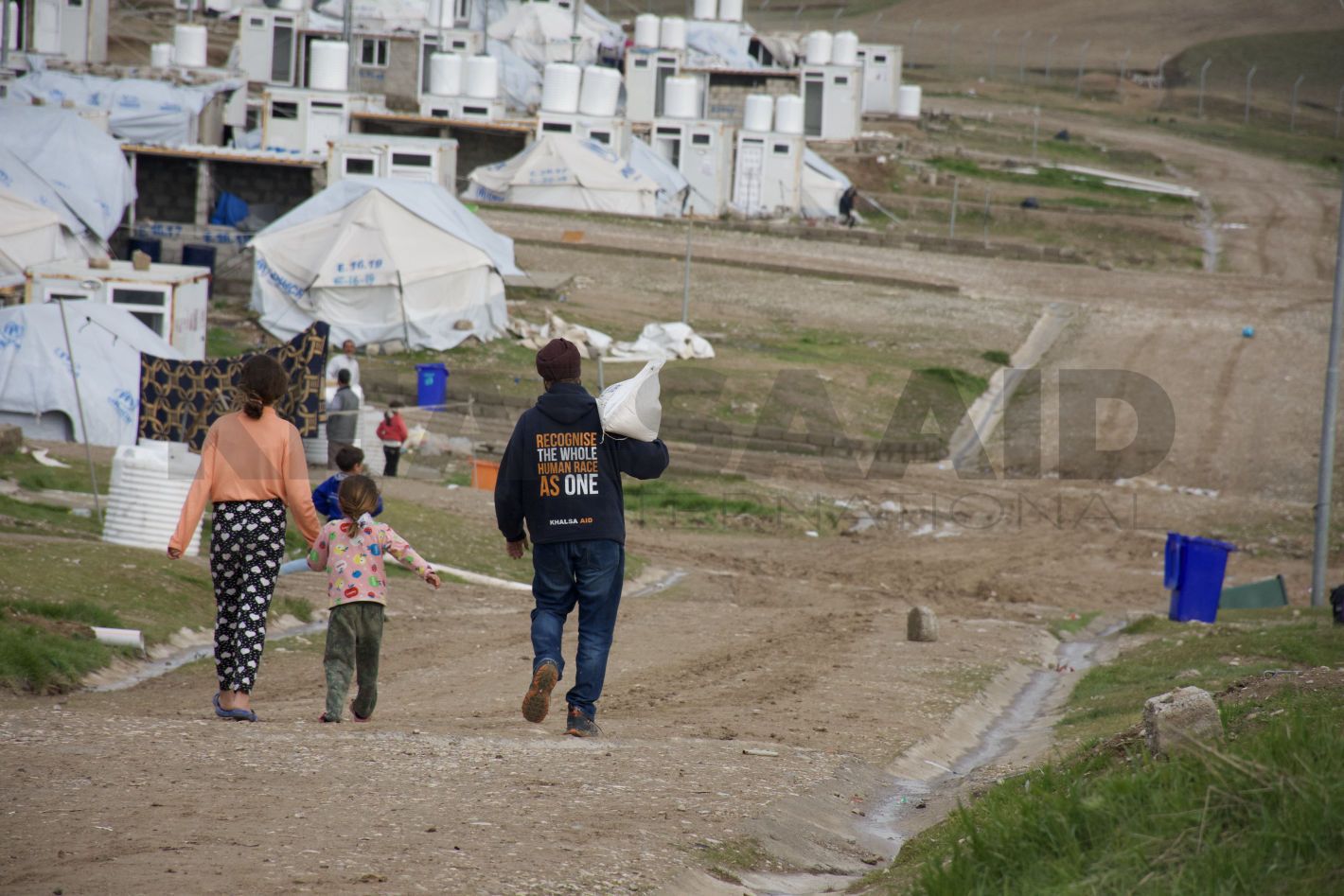
When the refugees arrived, the Khalsa Aid team provided them with warm clothing and blankets, water, basic aid items, shoes and a warm meal, which was often the first nourishment they had had in days. Once they had eaten, many refugees shared their stories with the Khalsa Aid team, with many having a high standard of living as professionals, including doctors, teachers, engineers and business owners. Some were even famous musicians that had carried their musical instruments with them to play folk tunes and keep spirits high. In addition to this, medical teams and a mobile medical unit from the UNHCR provided assistance and vaccines to children.
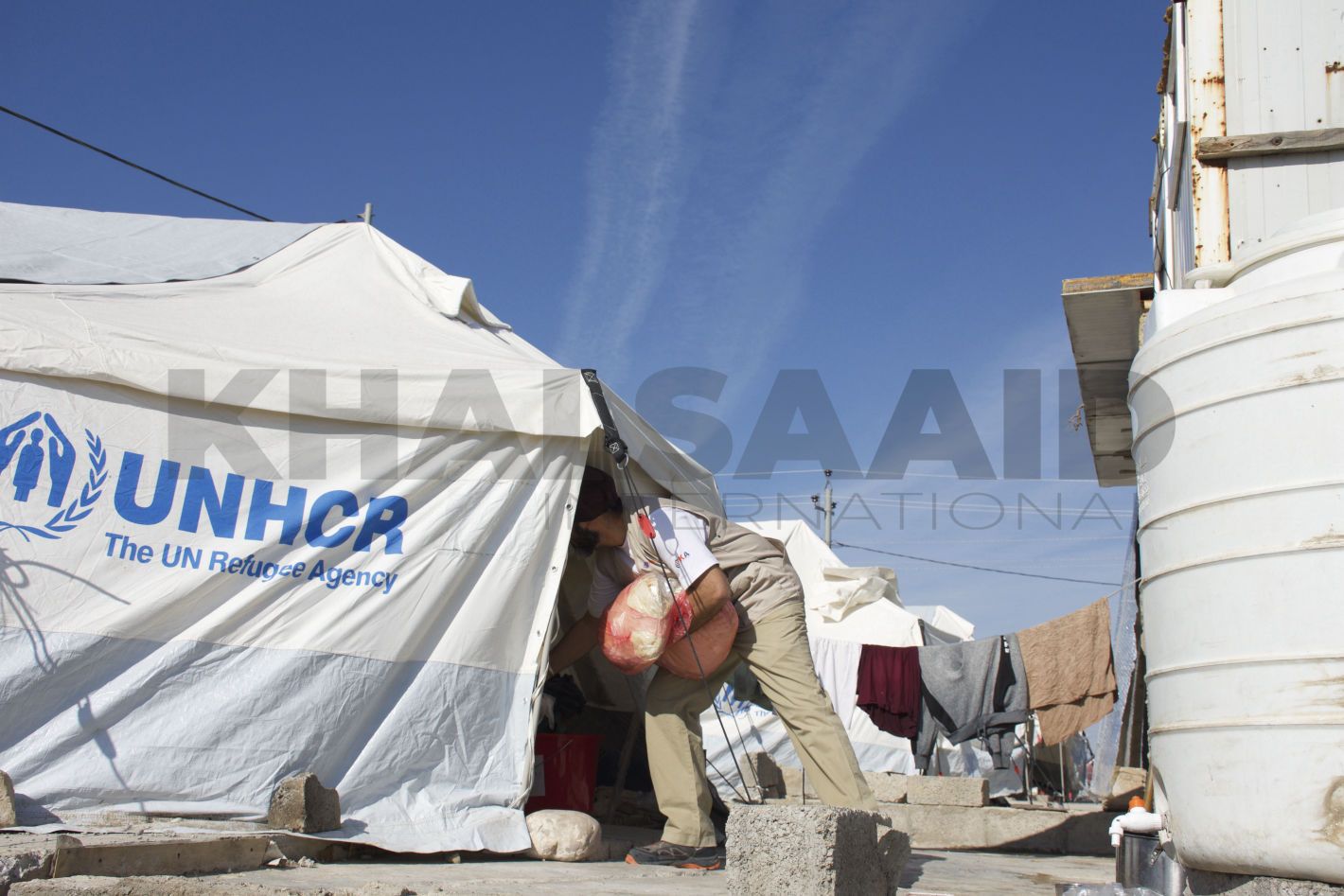
Ravi Singh attended emergency meetings at Bardarash camp, leading the Khalsa Aid team to supply water via tankers to the camp and nearby ones, until water supply had been restored. The Khalsa Aid team led by Sozan Fahmi was a permanent group made up of volunteers from the UK, locals and Syrian refugees who were keen to repay the help they had received. Multiple times each week, the team provided 29,700 portions of Syrian bread to over 11,000 camp residents, which was a significant exercise both logistically and in terms of resources.
Khalsa Aid’s work helping Syrian refugees has enabled them to have fair living conditions, giving them opportunities to rebuild their lives after having to flee their homes.